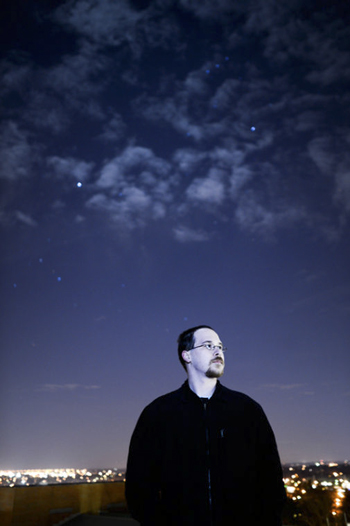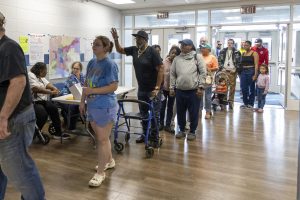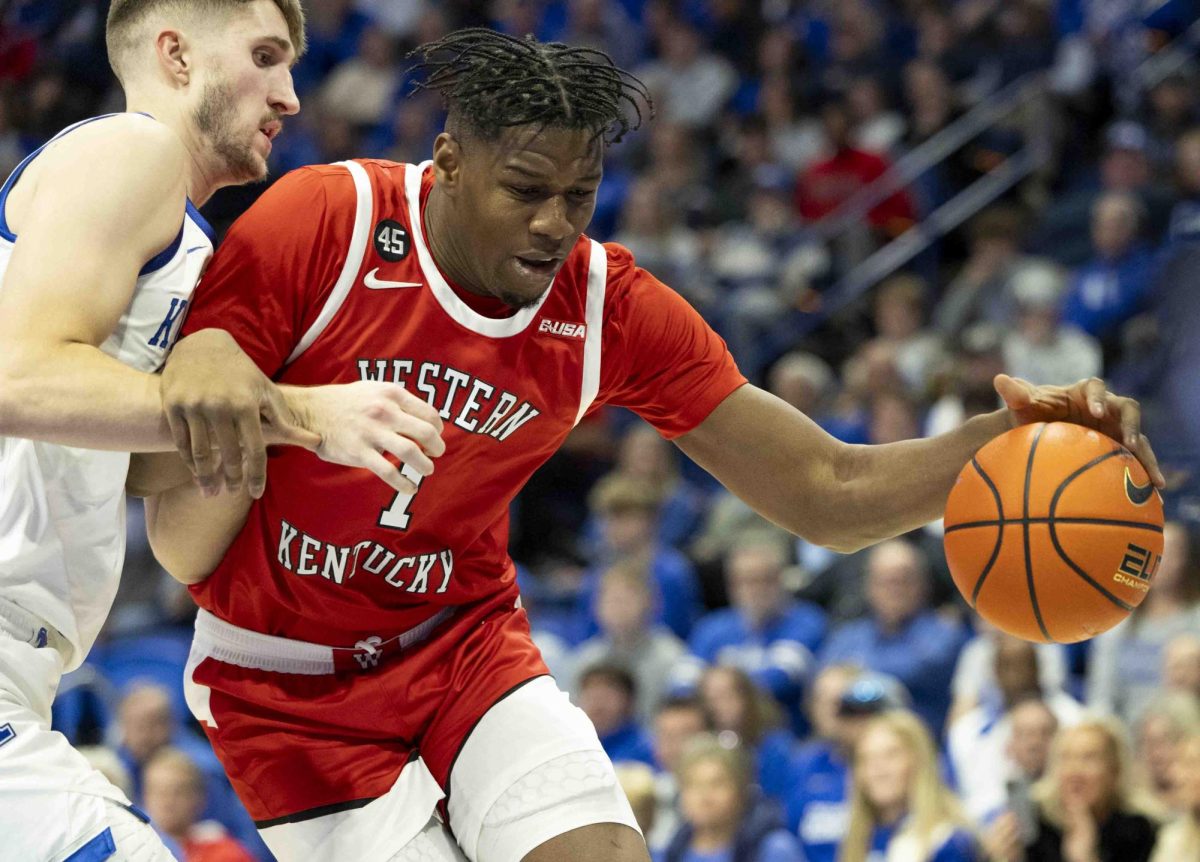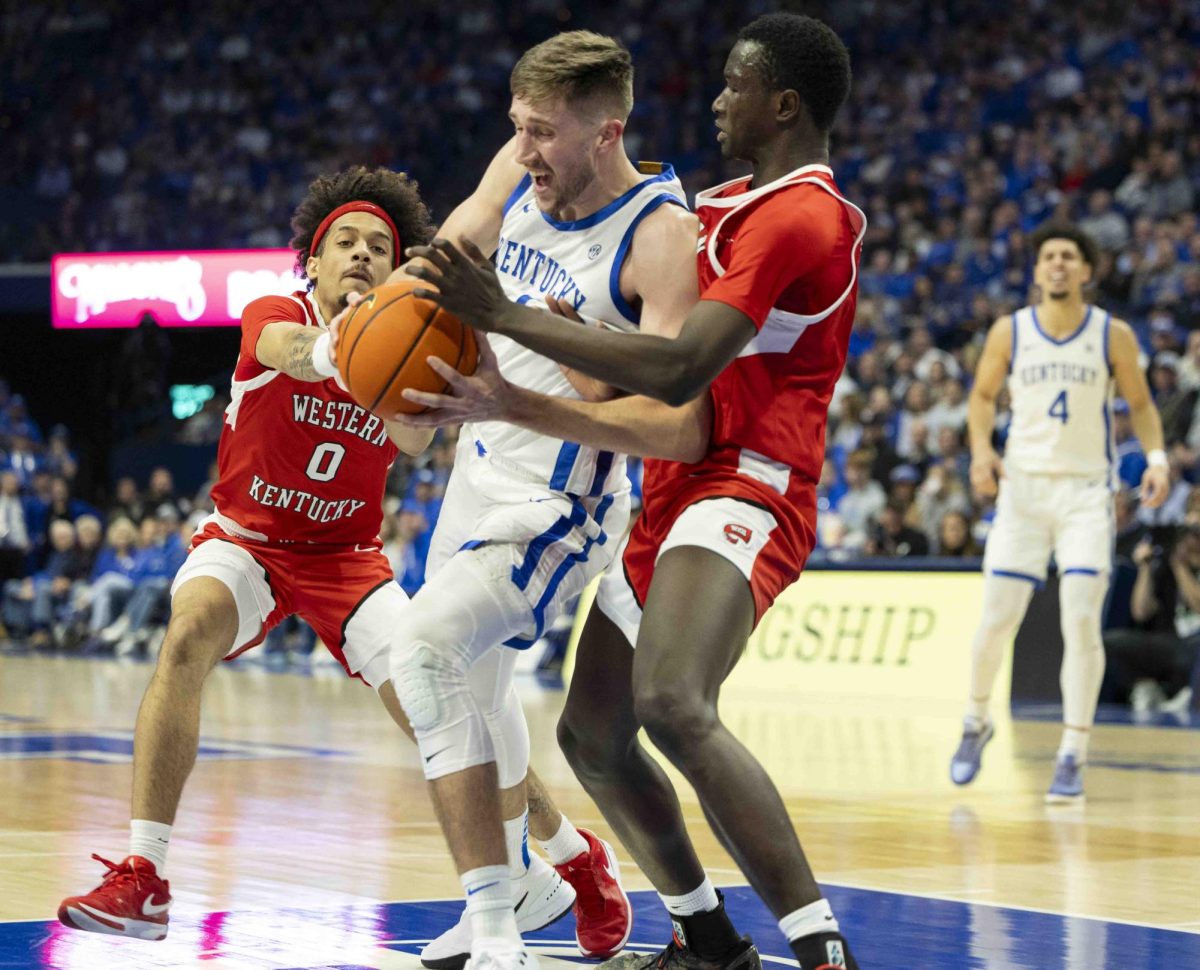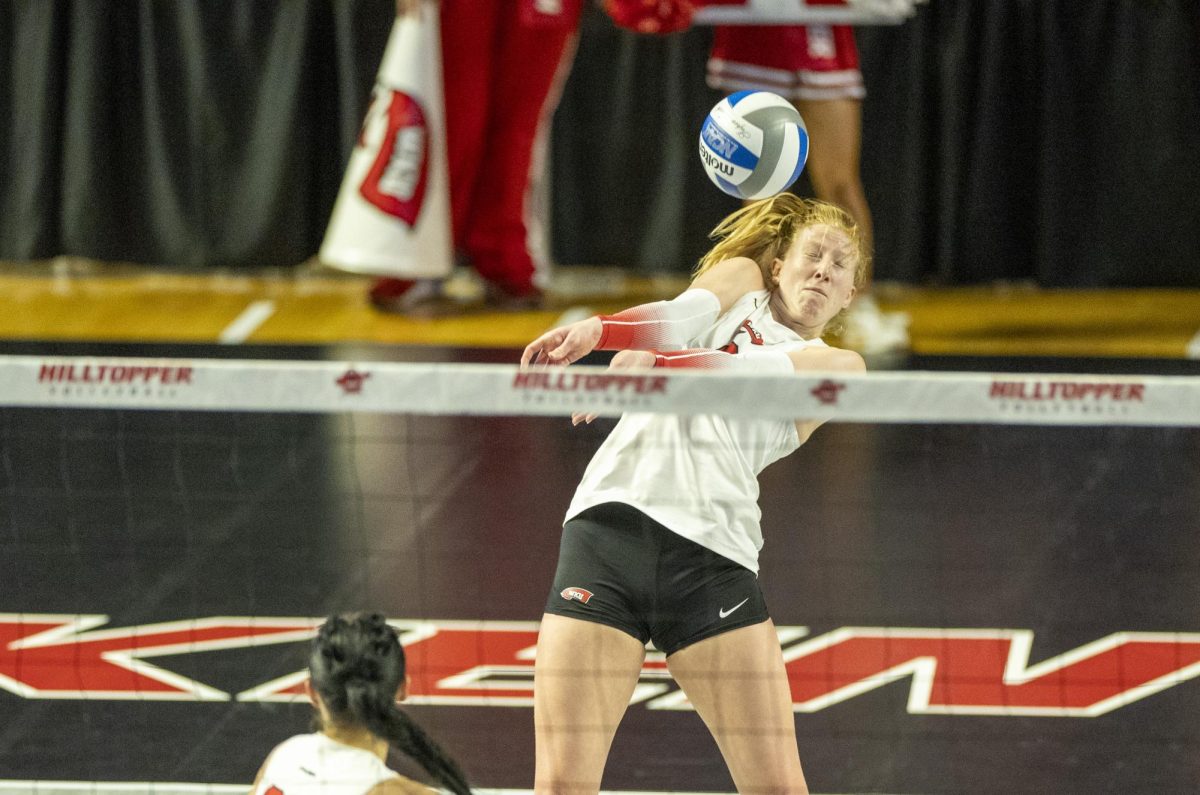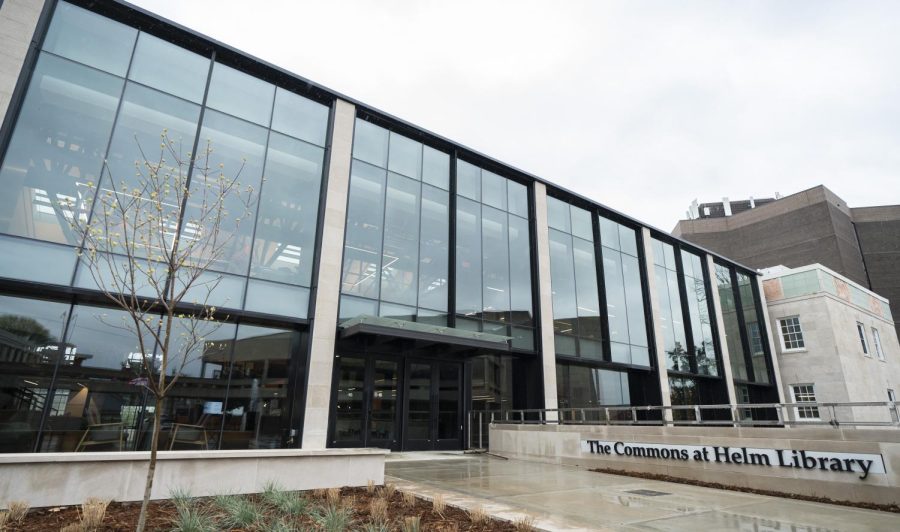R is for Rocket: WKU students to launch rocket this April
February 22, 2013
College life isn’t always rocket science, but it is for 11 WKU students who will launch a rocket in a NASA-sponsored competition this April.
The WKU Rocket Team has been constructing an approximately seven-foot-tall, 44-pound rocket since entering the NASA Student Launch Project last summer.
According to the official NASA contest page, SLP challenges high school and college students to build and launch a reusable rocket to one mile above ground level while carrying scientific or engineering cargo.
Bowling Green senior Daniel Jones, a leader of the Rocket Team, said competition requirements vary between the secondary and post-secondary levels. The team is competing in the University Student Launch Initiative, Jones said.
“We will be facing nearly 40 schools ranging from MIT to Louisville,” he said.
Jones also said the project has been a learning experience.
“At first we only knew how rockets worked on paper,” he said. “Before constructing our official rocket, we tested several $20 test rockets in order to gather different calculations before the actual flight.”
The project required the Rocket Team to submit a 61-page proposal, Jones said.
Bowling Green junior Tim Bucklew, a lead engineer for the Rocket Team, said the team has to follow certain stipulations.
“If the rocket goes past 5,600 feet during the launch, you’re automatically disqualified,” he said.
The competition will be held on April 20 in Huntsville, Ala.
Clarksville, Ind. junior Mariel Shumate, an engineer for the Rocket Team, said several of the team members toured the Marshall Space Flight Center in Huntsville on a field trip, where they heard about the competition.
“We started coming up with crazy ideas and decided we were going to do this,” she said.
Bucklew said heavy workload has caused the team to lose six members since the inception of the project.
Starting this past summer, members of the Rocket Team have dedicated about 11 hours a week, Bucklew said.
Nashville senior Owen Gaulle, who is in charge of the payload design and construction, said the rocket is nearly complete.
“We’re still waiting on the final parts to come in so we can perform several test flights with the rocket and make sure everything is working before we send it up,” he said.
The rocket will be equipped with two parachutes, an avionics section, which acts as the brain of the rocket and records flight data, a GPS tracking system and two cameras mounted on the base of the payload which will offer an aerial perspective of the rocket’s descent.
Bucklew said the Rocket Team is the first group to take on this challenge in school history, but little of their funding has come from WKU.
“We have received some funding from within the Physics and Engineering departments, but most of our money has come from the Kentucky Space Grant and local sponsors like the Corvette Museum,” he said. “You would think if we’re representing WKU in a national competition, they would be more willing to help us out.”
Brucklew lends this to what he considers to be the relative obscurity of the Rocket Team.
“We’re one of the unknown groups on campus,” he said.

